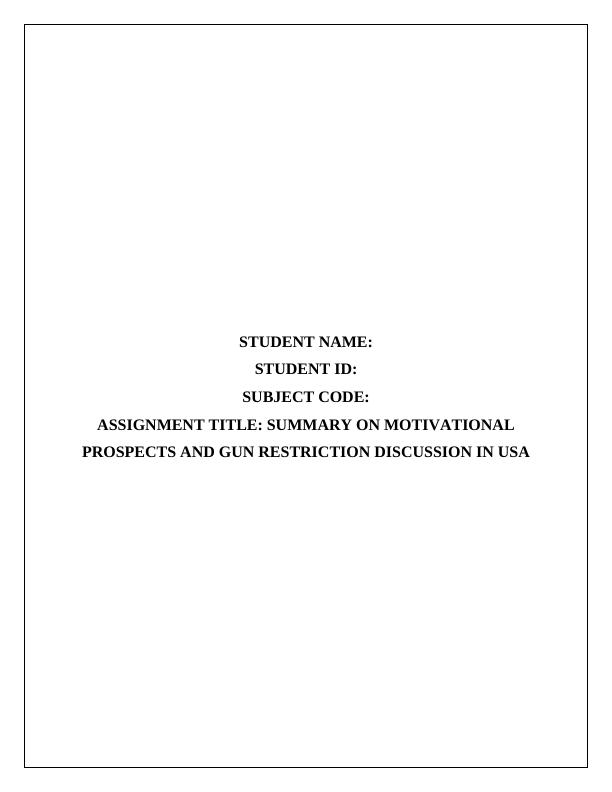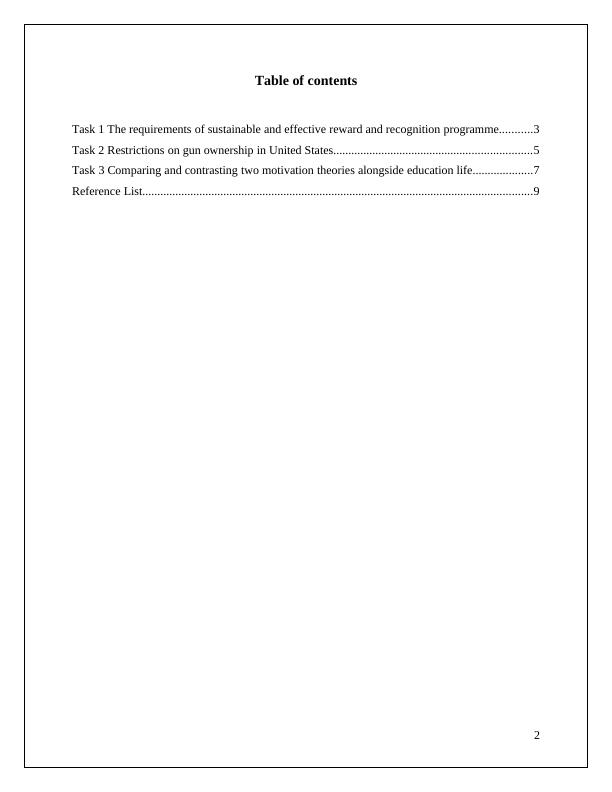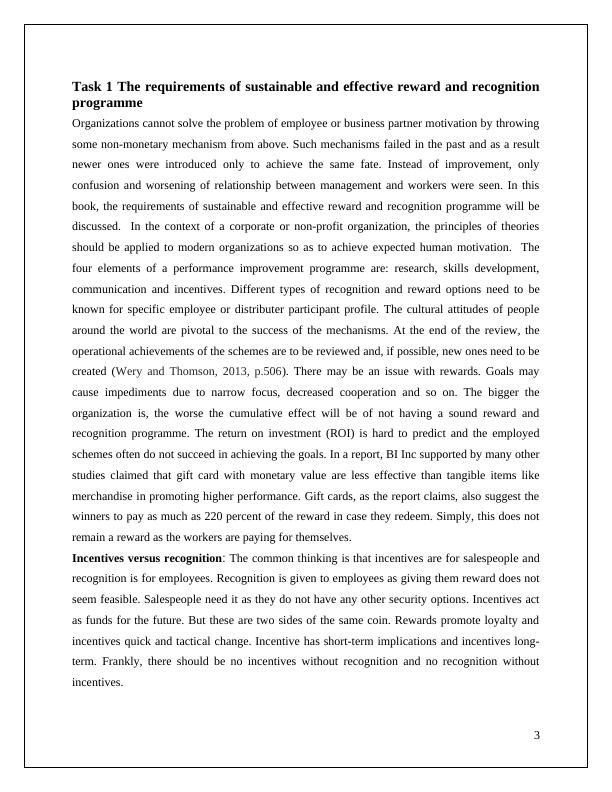Ask a question from expert
Sustainable & Effective Reward & Recognition Program
9 Pages2005 Words122 Views
Added on 2020-02-05
Sustainable & Effective Reward & Recognition Program
Added on 2020-02-05
BookmarkShareRelated Documents
End of preview
Want to access all the pages? Upload your documents or become a member.
Era Of Globalization - Motivation Effective Part|Employee Satisfaction
|9
|1884
|311
Academic research and writing assignment
|9
|1939
|160
A Case Study on the Impact of Rewarf
|7
|1967
|354
Reward Systems and Recognition Schemes | Report
|8
|1925
|101
Academic & Research Skills for Business TASK 11 TASK 22 Introduction 2 Main Body4 Conclusion 4 REFERENCES 5 TASK 1
|10
|1857
|498
Report On Modern Competitive Era Organizations - Motivation Issue
|8
|1934
|32


